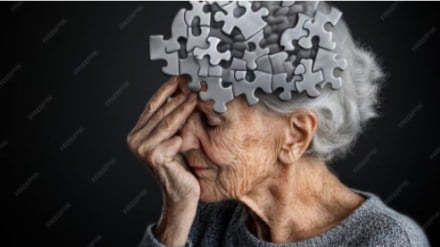World Alzheimer’s Day 2025: Alzheimer’s disease has become the common form of dementia, and is becoming one of the biggest health challenges worldwide. As per World Health Organization (WHO), nearly 10 million cases of dementia are reported each year, and 60–70 per cent of cases are Alzheimer’s.
Today, more than 55 million people are living with dementia globally, according to WHO. Alzheimer’s Disease International (ADI) warns that this number could rise to 78 million by 2030 and 139 million by 2050 if no treatments are found.
Though we often think that dementia is all about declining brain health, it’s way more than that. It affects a person’s ability to make decisions and do everyday tasks on their own, making independent living very difficult. But how to know if it’s a warning sign of dementia or just ageing? To know the difference, we got in touch with an expert who shares symptoms to watch out for.
“It’s normal for people to worry about memory loss as they get older,” says Dr. Saxena. “The important thing is to see how it affects daily life. Not every slip means dementia,” he further said.
Normal forgetfulness: When memory lapses are okay
Dr. Saxena explains that normal age-related forgetfulness includes small lapses, like misplacing keys or forgetting a name but remembering it later. “People with normal forgetfulness can still manage everyday tasks like cooking, paying bills, driving, or socialising,” he adds.
Other signs of normal forgetfulness include taking time to recall things, but the memory eventually comes back. People are usually aware of these lapses and can use reminders or routines. Sometimes, forgetfulness also happens due to stress, mood issues, too much alcohol, or Vitamin B12 deficiency.
When forgetfulness could be dementia
Dementia, including Alzheimer’s, is different. Dr. Saxena says, “It involves ongoing and worsening memory loss. People may forget recent events, repeat questions, or not recognise familiar faces. Daily tasks become harder, and memory cannot be recalled even with hints.”
Other warning signs include confusion about time or place, language difficulties, poor judgment, personality changes, and gradual decline over months or years. “Family members often notice these changes first,” he adds.
Key differences: Ageing or dementia
The main difference between normal forgetfulness and dementia is how it affects daily life. Normal forgetfulness means recalling things slowly, but you can still manage everyday tasks. Dementia, on the other hand, is a continuous decline in memory that only gets worse over time and makes it hard to live independently.
If you see any worsening memory issues, you should see a doctor. Early check-ups can help manage symptoms, plan treatment, and improve quality of life. Dr. Saxena explains, “Catching warning signs early is very important. Dementia affects more than just memory, it can impact safety, independence, and emotional well-being. Getting timely medical advice can make a big difference.”
